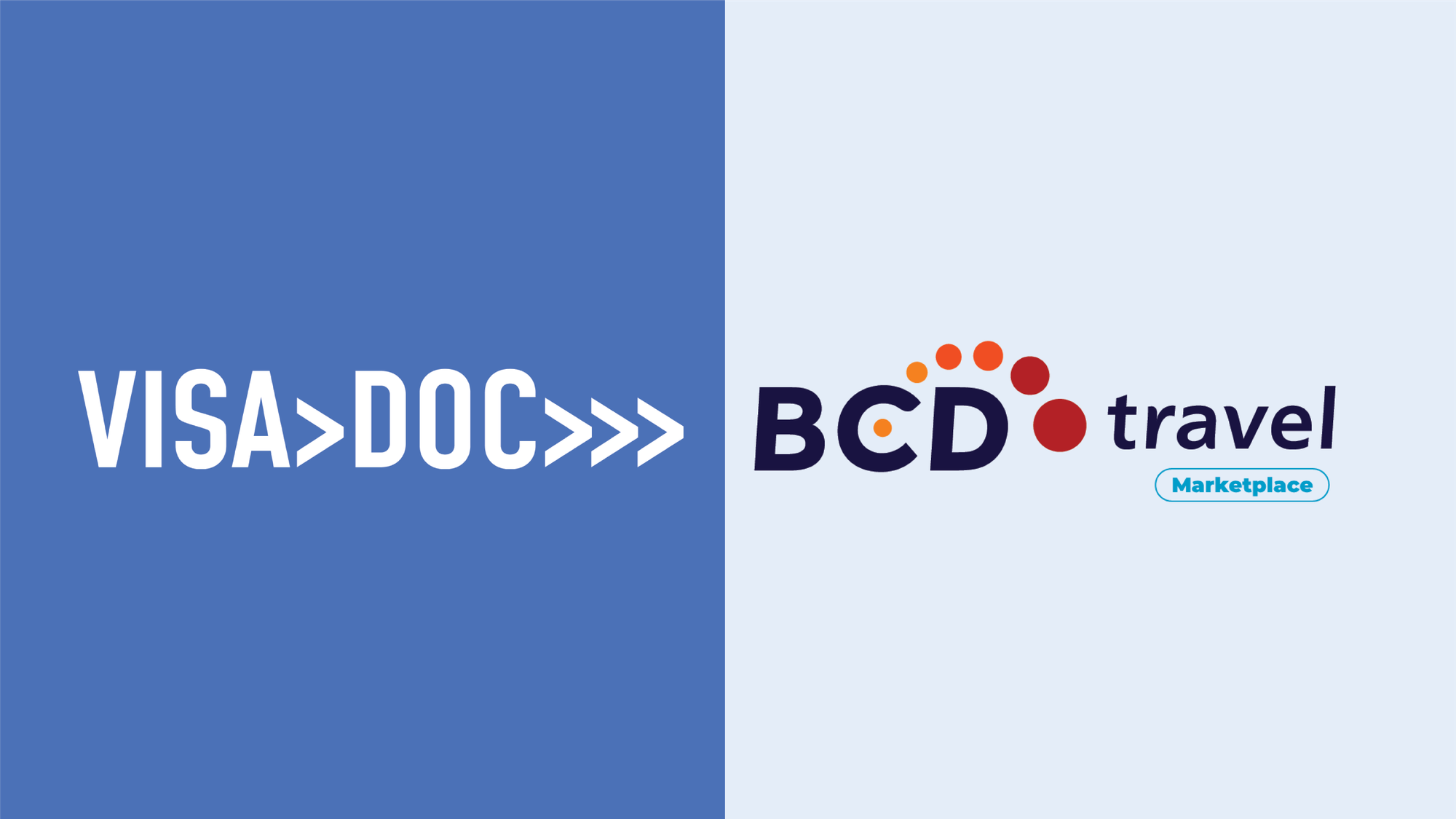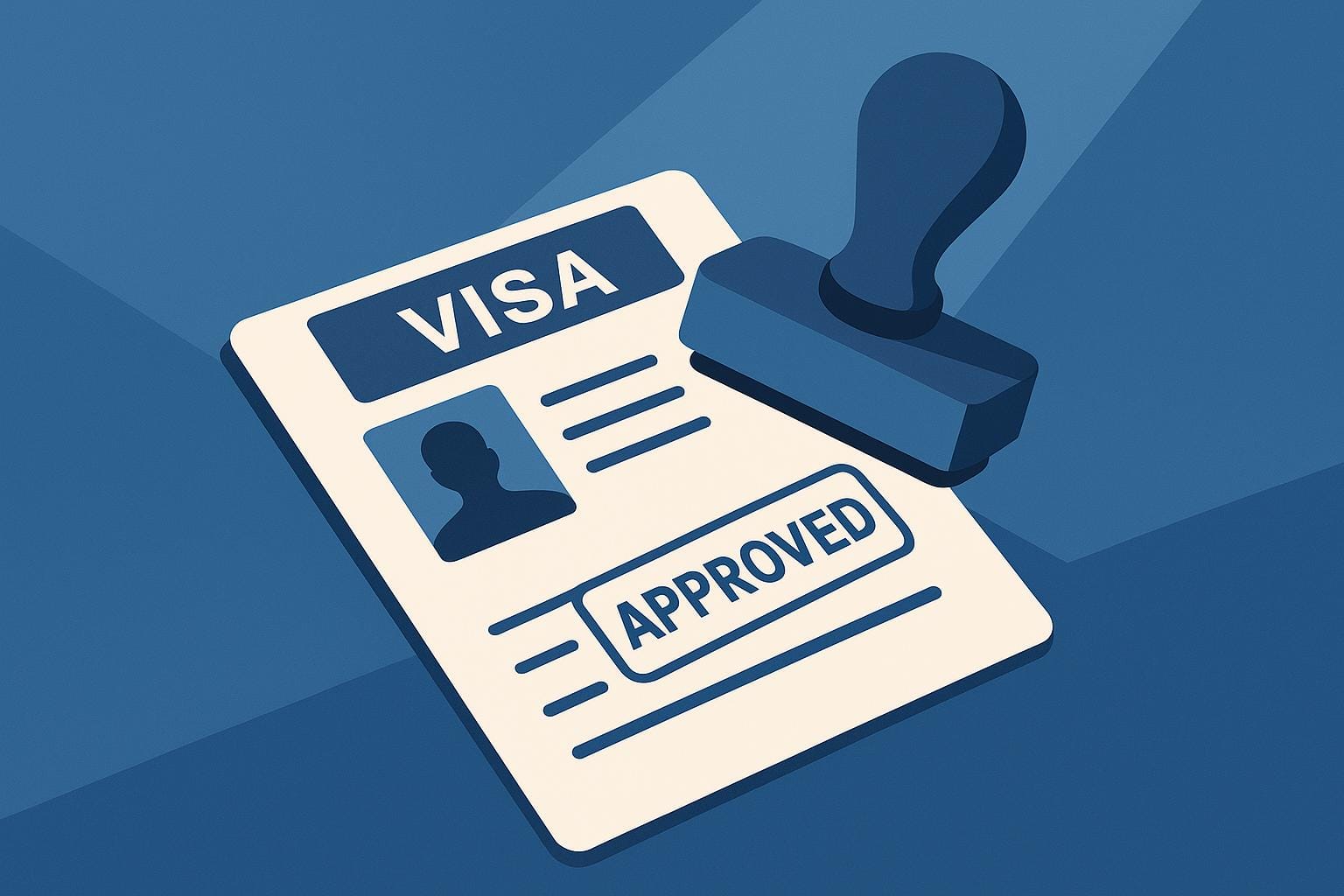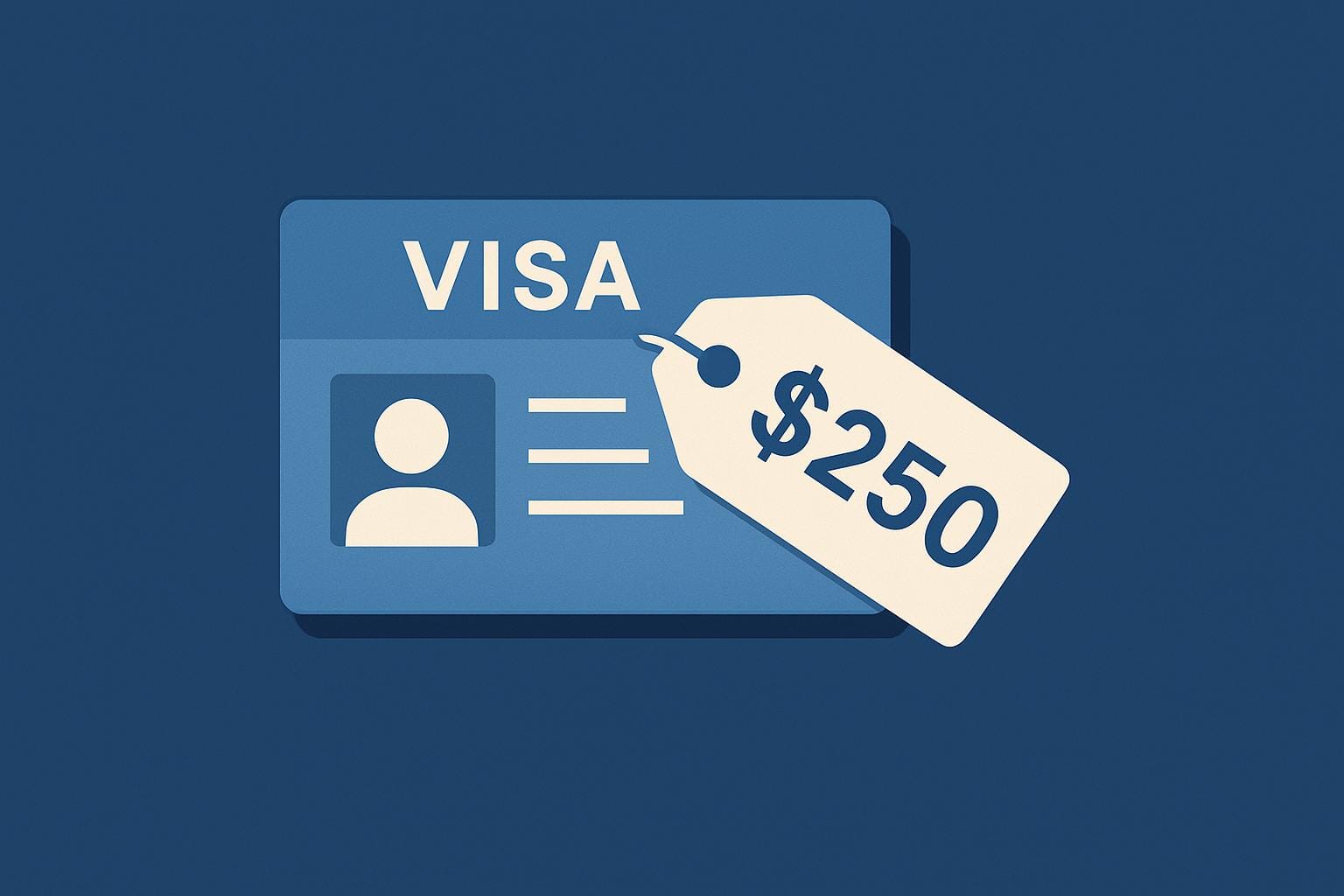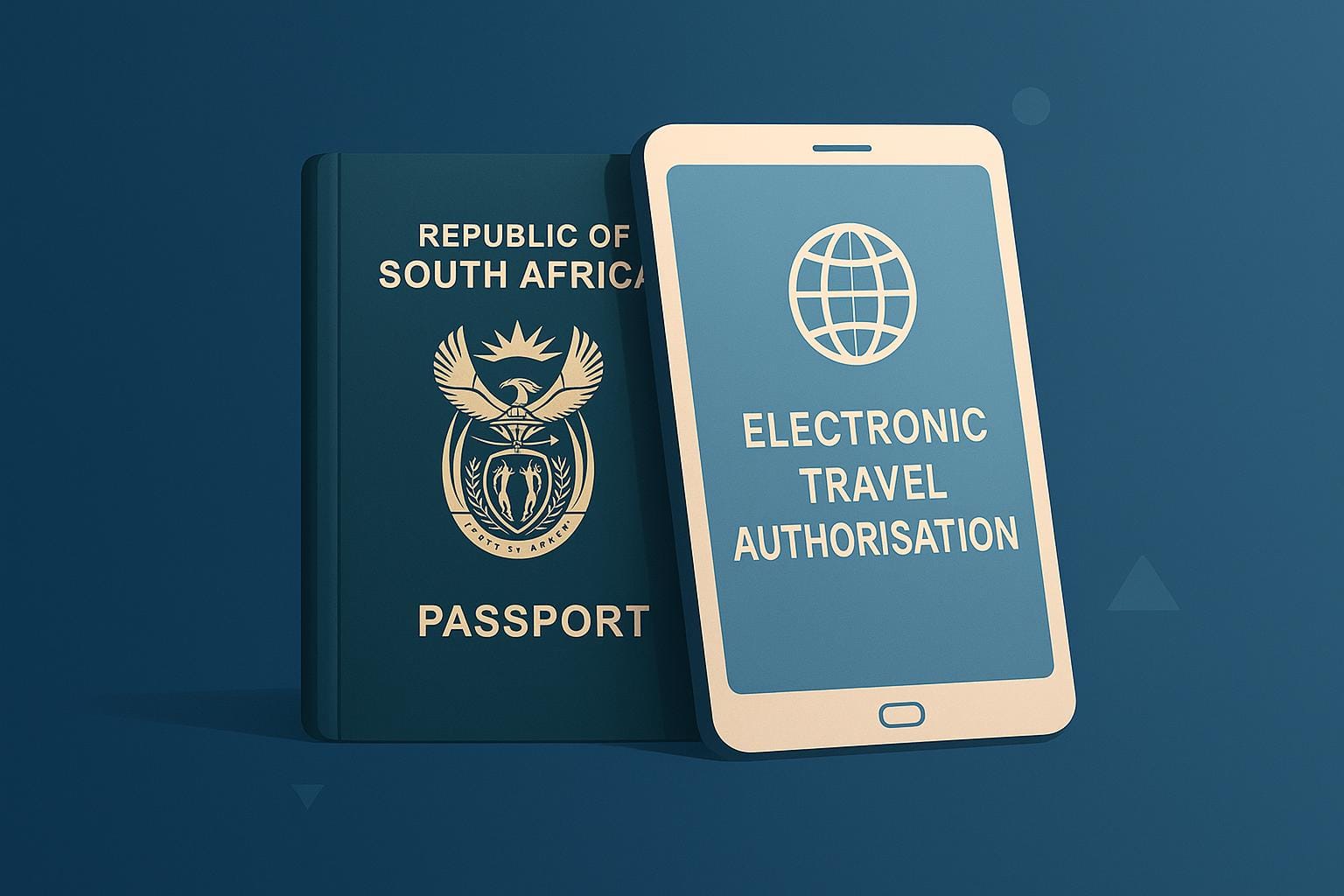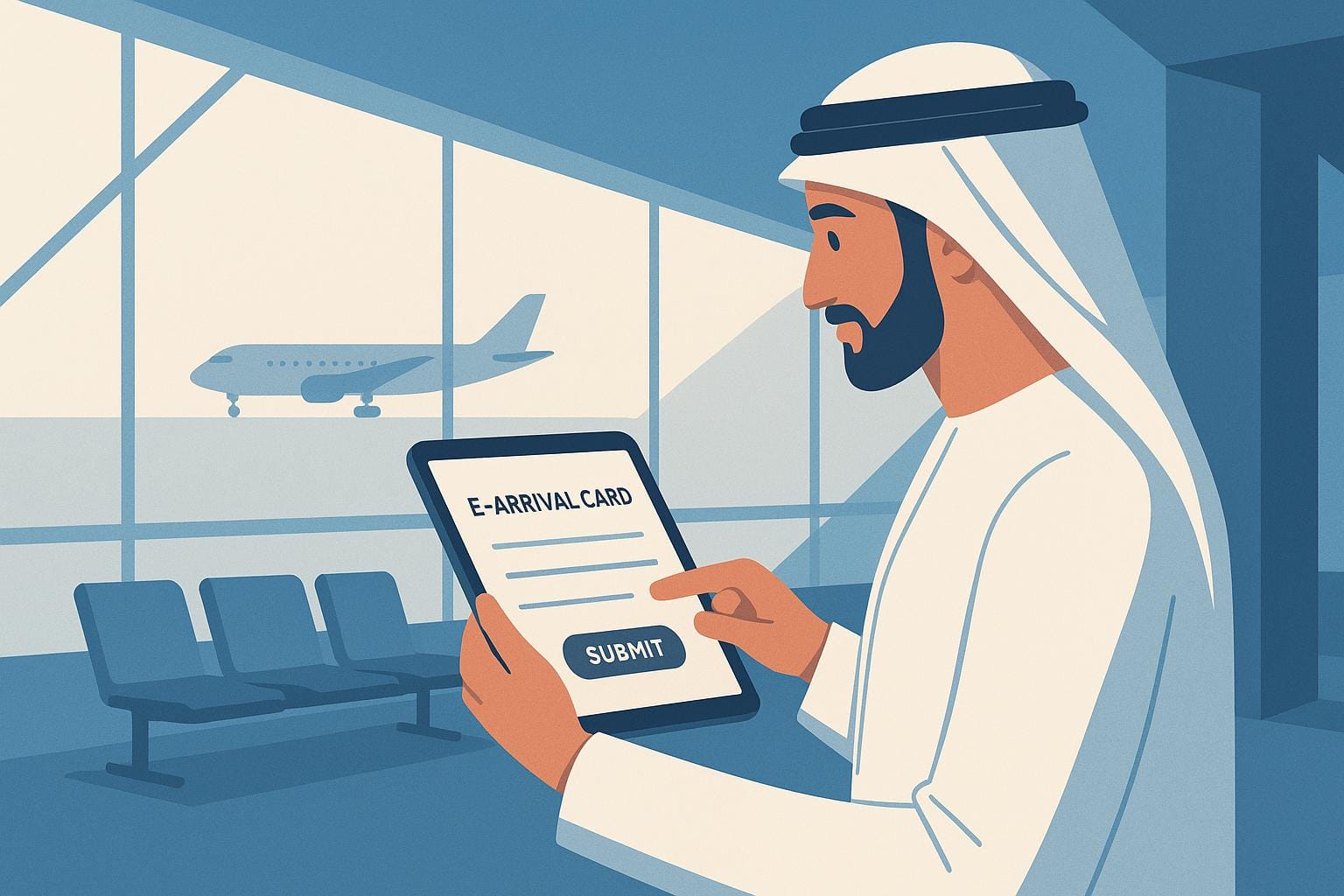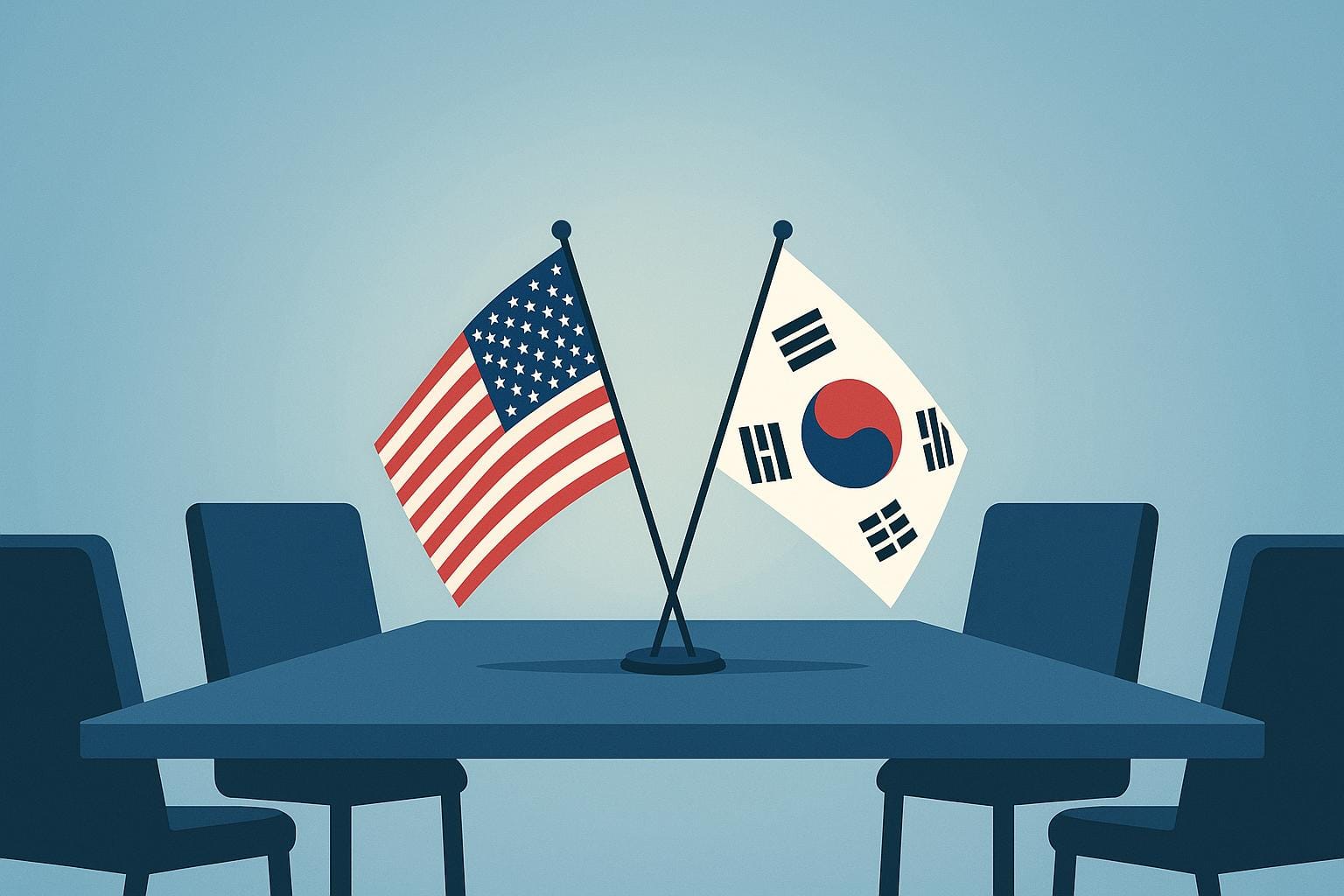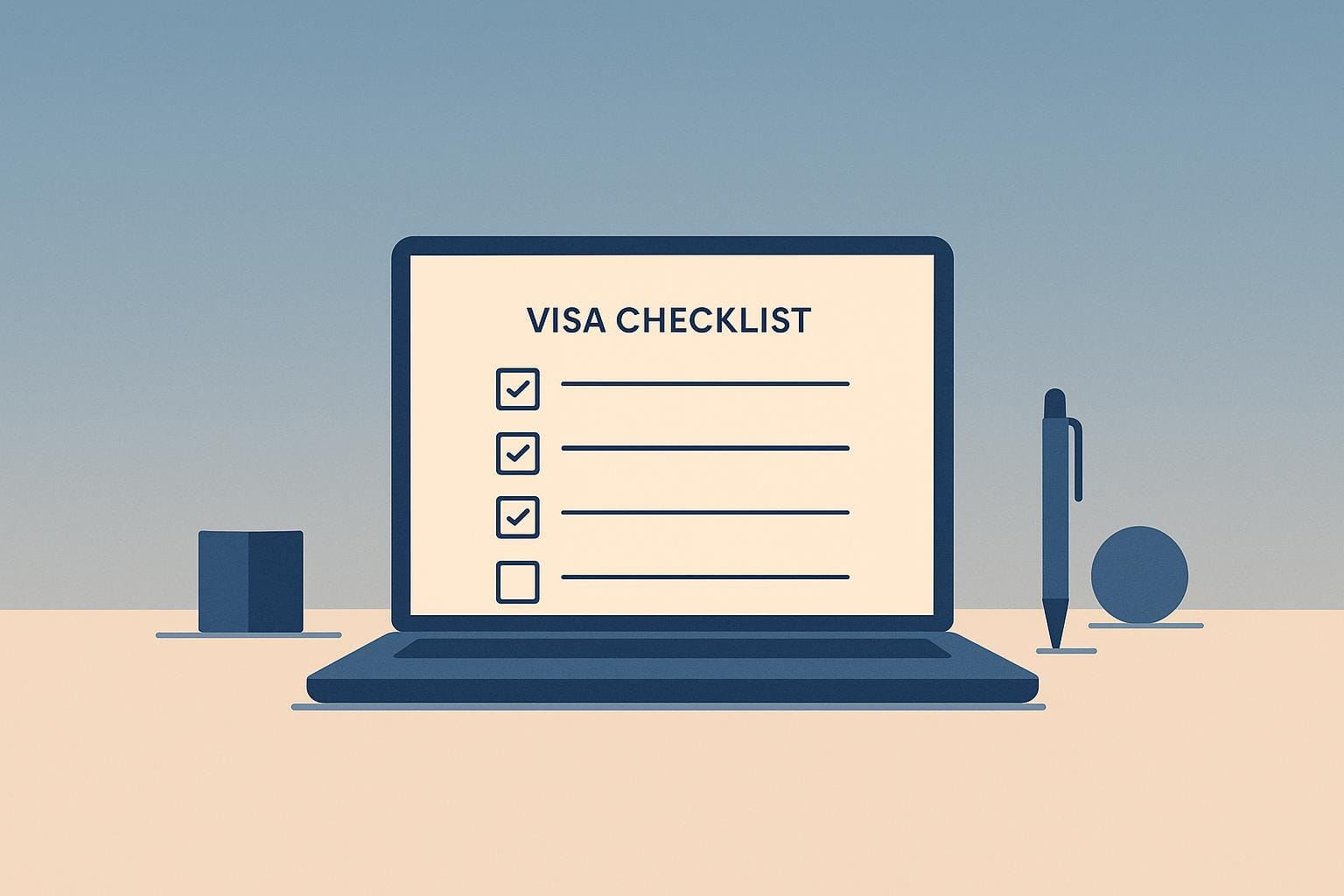Ghana’s short-term business visa is a straightforward option for companies assessing opportunities in West Africa. It bypasses the need for work permits, making it ideal for temporary market research, business meetings, and partnership evaluations. With single-entry visas valid for up to 90 days and multiple-entry options ranging from 6 months to 2 years, it provides flexibility for repeated visits.
Key points:
- Cost: £110 (single-entry), £130 (6-month multiple-entry), £220 (2-year multiple-entry).
- Eligibility: For business purposes only, not for paid employment.
- Requirements: Passport valid for 6+ months, visa application form, business and invitation letters, proof of travel and accommodation, yellow fever and COVID-19 vaccination certificates.
- Application: Submit at least 30 days before travel. Visa-on-arrival available for travellers from countries without Ghanaian consulates.
For businesses, this visa simplifies compliance and supports regional mobility, especially for ECOWAS nationals who don’t require a visa to enter Ghana. By preparing documents accurately and applying early, market entry teams can focus on their objectives without delays.
Eligibility and Documentation Requirements
Getting the eligibility right and preparing the necessary documents are key steps in securing a visa for Ghana. For market entry assessment teams planning business visits, understanding the specific criteria and documentation requirements is essential to ensure a smooth application process. Ghana has clear guidelines that must be followed to avoid delays or rejections.
Who Can Apply for the Visa
Ghana's short-term business visa is designed for foreign nationals travelling for legitimate business purposes. Market entry assessment teams are eligible, as their work often involves activities like consultations, conventions, contract negotiations, training, auditing, or estate settlement. However, it's important to note that this visa does not permit paid employment or work within Ghana.
A valid passport is a must for applicants, and damaged passports are strictly not accepted.
The visa typically allows a stay of 30 to 60 days, with the possibility of extending the visit up to 90 days. This timeframe is intended to support comprehensive market evaluations while reinforcing the temporary nature of the trip.
Below is a checklist of the required documents for your application.
Required Documents Checklist
When applying for a business visa, Ghana's Immigration Service requires the following:
Core Documentation:
- Visa application form – One fully completed and signed application form.
- Original passport – Must be valid for at least six months and have the required number of blank visa pages.
- Passport photographs – Two recent colour passport-sized photos.
- Business support letter – Provided by your UK-based company.
- Business invitation letter – Issued by the sponsoring company in Ghana.
- Host's identification – A copy of the local host's passport information page.
Travel and Accommodation Proof:
- Itinerary – Round-trip tickets or e-tickets showing your planned entry and exit dates.
- Hotel reservations – Official confirmation with the hotel’s address and dates of stay.
Health and Safety Requirements:
- Yellow fever certificate – Proof of mandatory vaccination.
- COVID-19 vaccination certificate – Evidence of your vaccination status.
Additional Requirement:
- Signature specimen – A copy of your signature as submitted on the "Ghana Consulate – Applicants Specimen Signature" form.
The business invitation letter is particularly critical, as it confirms the purpose of your visit, details your planned activities, and verifies the local company’s support.
Document Preparation Standards
Proper preparation of documents is crucial for visa approval. Ghanaian consulates enforce strict standards regarding the quality and format of submitted documents.
Passport Requirements:
Your passport must be in excellent condition, free from any damage, and valid for at least six months beyond your intended entry date. It is recommended to have at least two blank visa pages to ensure smooth processing. The six-month validity is calculated from your entry date into Ghana, not the application date.
Photograph Specifications:
Your passport-sized photos must be recent, in colour, and measure 2×2 inches. They should be taken against a plain white background. Low-quality images or digital prints are likely to be rejected.
Business Letters and Invitations:
The business invitation letter must be written on official letterhead and addressed to the appropriate Ghanaian Consulate. It should outline your market assessment activities, the duration of your stay, and the relationship between the companies involved. Similarly, your UK company’s support letter should confirm your employment, explain the purpose of your trip, and state the company’s responsibility for covering the associated costs.
Form Completion Standards:
The visa application form must be filled out accurately, with no handwritten corrections or amendments after printing. Your signature on the form must match the one in your passport exactly. Any inconsistencies could lead to delays or rejection.
Timing Considerations:
Submit your application at least 30 days before your planned travel date. Single-entry visas are valid for 90 days from the issue date, so applying early ensures you have the flexibility needed for your market assessment.
It’s worth noting that Ghana does not issue work visas through its overseas missions. If your market assessment leads to employment opportunities, you’ll first need to secure a business visa and then apply for a work permit through Ghana’s Ministry of Labour after arrival.
Step-by-Step Visa Application Process
Handling Ghana's visa application process requires careful organisation and attention to detail. For HR teams overseeing market entry assessment visits, understanding the workflow is essential to avoid delays that could disrupt business plans. Here’s a breakdown of the process, from preparation to submission.
Pre-Application Preparation
Begin preparations at least 30 days before your planned departure to account for potential delays. First, confirm that your organisation is properly registered with the relevant authorities. Ensure all corporate documents - such as employment contracts, business registration certificates, and tax clearance records - are up-to-date and, where necessary, notarised.
Your travel plans should align with visa requirements. Double-check that your itinerary, including entry and exit dates, accommodation details, and scheduled business activities in Ghana, complies with consular guidelines. Make sure travel dates match the visa validity period.
To streamline the process, create a centralised checklist for each team member to track the completion of required documents. Start early on time-consuming requirements like medical and police clearance certificates.
For market entry assessment visits, prepare a detailed business justification document. This should outline the planned activities, expected outcomes, and the overall purpose of the trip. This step is key to demonstrating the temporary and legitimate nature of the travel, ensuring compliance, and facilitating smooth processing.
Application Submission and Processing
Visa applications for Ghana can be submitted either in person at the nearest Ghanaian consulate or by post. For in-person submissions, book your appointment well in advance - especially during busy travel seasons - and bring both the original documents and certified copies for verification.
If applying by post, use a tracked delivery service and keep the tracking number for reference. Include a prepaid return envelope with appropriate postage. Keep in mind that postal submissions often take longer to process, so plan accordingly.
Different consulates may accept various payment methods, such as cash, bank drafts, or money orders. Confirm the accepted formats and exact fees before submitting your application. While tracking options for applications may be limited, maintain detailed records of submission dates, reference numbers, and any correspondence for future reference.
The Ghana Immigration Service (GIS) manages the visa review process and may request additional documents during this stage. Respond promptly to any such requests to minimise delays.
Best Practices for HR Teams
After submission, it’s important to implement efficient follow-up and tracking practices. Standardised procedures can help manage multiple applications consistently. Digitise all documents for easy access, but retain physical copies until the process is complete.
Given that processing times can vary, allow a buffer of at least 30 days between the application and travel dates to handle unexpected delays. Maintain clear communication with team members, provide regular updates on application statuses, and use a unified tracking system to stay organised.
Stay informed about any policy updates from the Ghana Immigration Service by monitoring official announcements. For complex cases, consider consulting local legal experts familiar with Ghana’s immigration rules.
To mitigate risks, develop contingency plans. These could include preparing alternative travel dates or having backup team members ready if primary applicants encounter visa issues. Lastly, ensure all application details and supporting documents are consistent, as discrepancies can lead to delays or rejections. Keeping thorough records of timelines, costs, and challenges will help refine your organisation’s visa management processes for future applications. Incorporating automation tools can also improve efficiency in managing these tasks.
Automation and Efficiency in Visa Management
Handling visa applications manually can be a slow and error-prone process, especially for market entry assessment teams. To address these challenges, more businesses are turning to automation. Platforms like VisaDoc are stepping in to simplify visa management, helping organisations reduce compliance risks and improve efficiency. VisaDoc’s AI-powered platform automates critical parts of visa processing, ensuring accuracy while adhering to regulatory requirements.
VisaDoc Features for Visa Processing
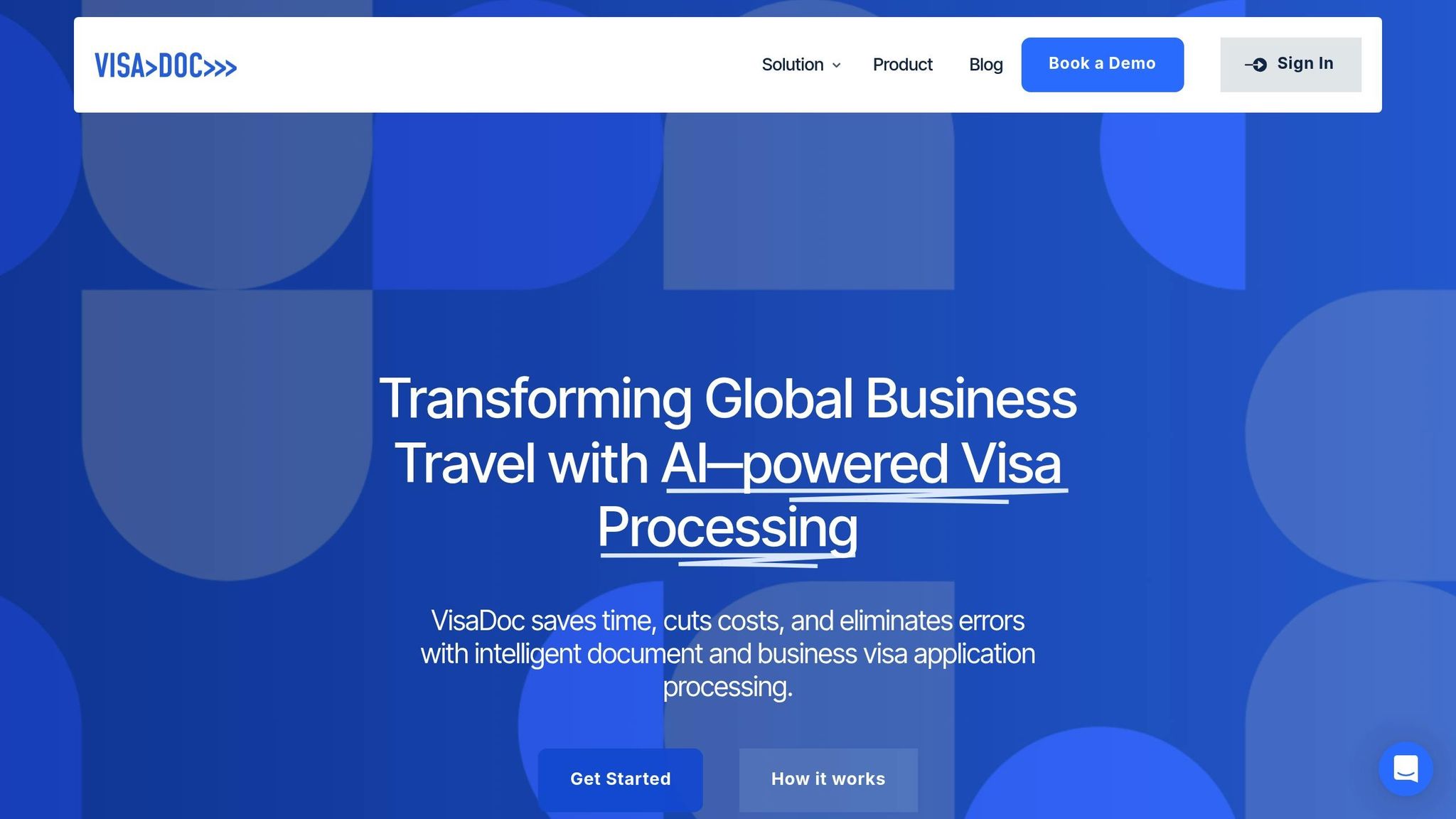
In February 2025, VisaDoc introduced its AI-driven platform to transform global visa processing and eliminate common errors. The platform integrates seamlessly with existing HR systems and travel booking tools via its API. This allows organisations to manage Ghana visa applications alongside other travel needs without disruption.
VisaDoc's AI takes care of document verification and guides users through the entire process, from collecting documents to final submission. It also provides real-time status alerts and automatically generates supporting documents required for applications. Personalised notifications keep users informed about updates, ensuring they never miss a step.
A centralised dashboard offers HR teams a clear view of all visa applications within the organisation. This feature allows managers to track multiple applications at once, cutting down on repetitive data entry and saving valuable time.
Manual vs. Automated Workflows Comparison
When comparing manual visa processing methods to VisaDoc's automated workflows, the advantages become clear. Manual processes often involve repetitive administrative tasks and are prone to human error. In contrast, VisaDoc’s automation streamlines document verification with built-in AI error detection. It also simplifies compliance monitoring and generates necessary documents efficiently, all while providing centralised tracking.
With these tools in place, HR teams can shift their focus to more strategic tasks rather than getting bogged down by delays or mistakes. VisaDoc also ensures that its application guidance is always aligned with the latest requirements from the Ghana Immigration Service, updating its instructions whenever regulations change.
Improved Compliance with VisaDoc
Staying compliant with Ghana’s visa regulations is easier with VisaDoc’s automated monitoring and alerts. The platform continuously tracks regulatory updates from the Ghana Immigration Service and adjusts application requirements accordingly. Automated checks catch errors like mismatched dates or missing documents, helping organisations avoid costly delays.
For businesses managing travel across multiple countries, VisaDoc’s global coverage is a game-changer. Teams can handle Ghanaian visas alongside those for other West African destinations, all within a single platform. This ensures consistent application standards across regions. Additionally, personalised notifications keep HR managers and applicants informed about critical deadlines and required documents.
"VisaDoc, an innovative AI-powered visa processing platform, has officially launched to enhance the efficiency and accuracy of business travel and corporate relocation processes." (Travel And Tour World, 2025)
Conclusion: Streamlining Market Entry in Ghana
Ghana’s short-term business visa offers a gateway to entering the West African market, but success hinges on careful preparation, strict adherence to regulations, and the smart use of technology. By understanding the necessary legal requirements, maintaining compliance, and leveraging automation tools, businesses can navigate the process more efficiently and set themselves up for smooth operations in the region.
Key Takeaways for Market Entry Teams
For market entry teams, timing is everything. Submitting visa applications early is crucial to account for processing times. The Ghana Immigration Service requires detailed documentation, including business invitation letters and confirmed flight bookings, which must be prepared meticulously.
Visa application fees are non-refundable, so accuracy is vital. Single-entry visas, typically valid for 90 days from the issue date, should be applied for no more than 30 days before travel to make the most of their validity.
Partnering with local experts can help reduce compliance risks and speed up market evaluations. Additionally, cultural understanding plays a key role in building relationships. Teams should respect local customs, dress professionally, and ensure proper greetings. Consulting healthcare professionals about vaccinations and other health precautions is also essential before travelling.
These strategies lay the foundation for a more efficient and effective approach to market entry.
Final Recommendations
Taking these insights further, automation stands out as a game-changer for reducing the administrative challenges of visa management. Automation simplifies processes across West Africa, and its benefits are clear: 91% of businesses report increased productivity, while 73% highlight improved efficiency through AI tools.
Tools like VisaDoc offer practical solutions by enabling real-time compliance monitoring, automating document verification, and integrating seamlessly with HR systems. They also keep track of updates from the Ghana Immigration Service, ensuring applications meet current standards and minimising manual errors.
For organisations aiming to expand into the region, starting visa applications early is a fundamental step. Collaborating with local legal experts, staying updated on GIS policies, and maintaining complete and accurate documentation can significantly reduce processing delays and rejection risks.
Investing in automated visa management tools not only eases administrative workloads but also boosts compliance rates and improves the overall employee experience. With 40% of companies planning to increase business travel in 2025 and 73% expanding travel budgets, efficient visa processes are more critical than ever for staying competitive.
FAQs
What advantages does Ghana's short-term business visa offer to market entry assessment teams in West Africa?
Ghana's Short-Term Business Visa: A Gateway for Market Exploration
Ghana's short-term business visa is a practical tool for teams looking to assess market opportunities in West Africa. It enables professionals to carry out crucial tasks like attending meetings, conducting site visits, and participating in seminars - all without committing to a long-term presence. This visa is tailored for short-term professional engagements, making it a smart choice for businesses keen on evaluating new markets efficiently.
Some standout advantages include a simplified application process, quicker approval times, and fewer restrictions compared to other visa types. Moreover, it ensures compliance with Ghana's legal framework, giving HR and corporate travel teams confidence in managing regional mobility. With its flexibility, this visa is an excellent option for companies aiming to explore market potential while keeping operations smooth and hassle-free.
What steps can businesses take to comply with Ghana’s short-term business visa requirements and avoid common mistakes?
To meet Ghana's short-term business visa requirements and steer clear of common pitfalls, businesses must ensure all the necessary documents are in order. This typically involves submitting a valid invitation letter, proof of return travel, and any other required paperwork. It's crucial to double-check that every detail aligns with Ghanaian immigration regulations to avoid delays or potential rejections.
Additionally, it's vital to be aware of the limitations tied to short-term business visas. For instance, these visas often prohibit engaging in paid employment. Making sure your team understands these restrictions can help avoid accidental violations that could impact future travel plans. By carefully navigating the application process and adhering to the rules, businesses can simplify visa approvals and concentrate on their market entry strategies in West Africa.
How can automation tools like VisaDoc help streamline visa applications for teams assessing market opportunities in West Africa?
Automation tools like VisaDoc make the visa application process quicker and easier for teams venturing into the West African market. By taking care of repetitive tasks like filling out forms, checking documents, and monitoring application progress, these tools cut down on administrative work and help avoid mistakes.
With this efficient system, HR and corporate travel teams can handle multiple visa applications without hassle, speeding up the process and ensuring they stay aligned with local regulations. This means businesses can concentrate on their market entry plans without getting caught up in the complexities of visa procedures.
Related Blog Posts
- Supporting Your Employees Through the Visa Process: A Travel Manager’s Guide
- India Business Travel Guide: Visas, Permits, and Cultural Tips for Success
- Egypt's Short-Term Business Visa for Infrastructure Project Site Visits
- Peru's Mining Sector Business Visitor Program: Short-Term Site Assessment Visa Options




